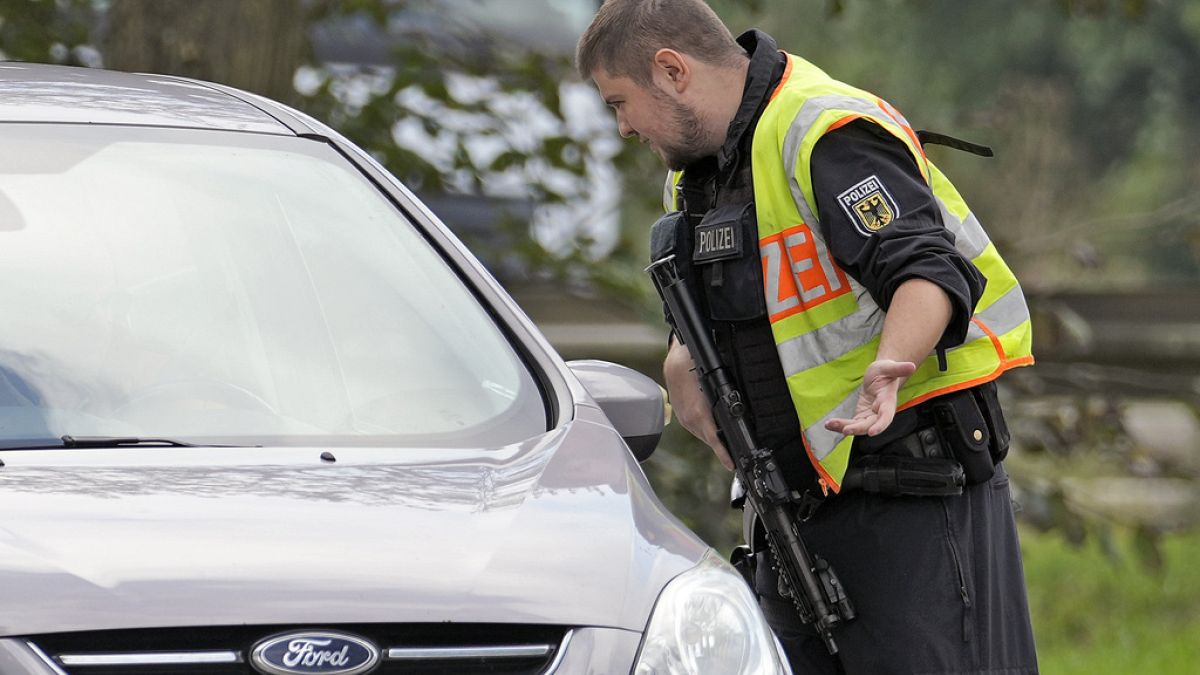Border checks are causing concern for German industries, leading to delays and higher costs. The reintroduction of land border controls in Germany has sparked fears among business groups, with the Chamber of Commerce and Industry highlighting issues such as delays in transportation of time-sensitive goods like food. Workers commuting across the borders are also facing challenges, with calls for special government certificates to allow them to pass through checks more quickly.
The managing director of the Federal Association for Freight Forwarding and Logistics has emphasized the need for Germany to implement a green lanes policy, similar to what was in place during the pandemic. This policy allowed freight vehicles to pass through border crossings swiftly, minimizing delays. Concerns have been raised about the potential impact on cross-border commuters working in German logistics facilities, as any restrictions on free movement of persons could result in delays and increased costs for the economy.
The interior ministry has stated that the extra border checks are intended to reduce irregular migration, prevent criminal activity, and detect potential security threats. However, credit insurer Allianz Trade has warned that the delays at the borders could lead to a decrease in trade and an increased risk of recession. The increase in waiting times could also raise transport and goods costs, impacting the overall trade volume and competitiveness for German manufacturers.
The transport and logistics industry in Germany has voiced concerns that the checks could lead to higher costs for companies, ultimately resulting in higher prices for consumers. Traffic jams and delays faced by truck companies could lead to difficulties in adhering to driving and rest time regulations, as well as necessitating higher prices for transport solutions. The association representing the industry has indicated that if such delays persist, they will seek support from the European Commission to establish special lanes for trucks to bypass the controls and focus on enhancing external border checks.
In response to the challenges posed by the reintroduction of land border controls, German business groups are advocating for policies like green lanes to facilitate smoother trade and transit for both goods and workers. The economy’s reliance on cross-border commuters and seamless logistics operations underscores the importance of efficient border procedures to prevent delays and cost increases. Additionally, the potential impact on trade, competitiveness, and overall economic health underlines the need for careful consideration and coordination with neighboring countries to minimize disruptions and ensure the free movement of goods and people.
As Germany grapples with the implications of stricter border controls, the looming threat of decreased trade volume, increased costs, and potential recession risks highlight the urgency of finding effective solutions. Collaborating with industry stakeholders, government authorities must work towards identifying measures that balance security concerns with economic imperatives to mitigate the adverse effects on businesses, consumers, and the overall economy. By prioritizing efficient border management strategies and promoting seamless trade facilitation, Germany can navigate through the challenges posed by border checks and safeguard its economic stability in the long run.










